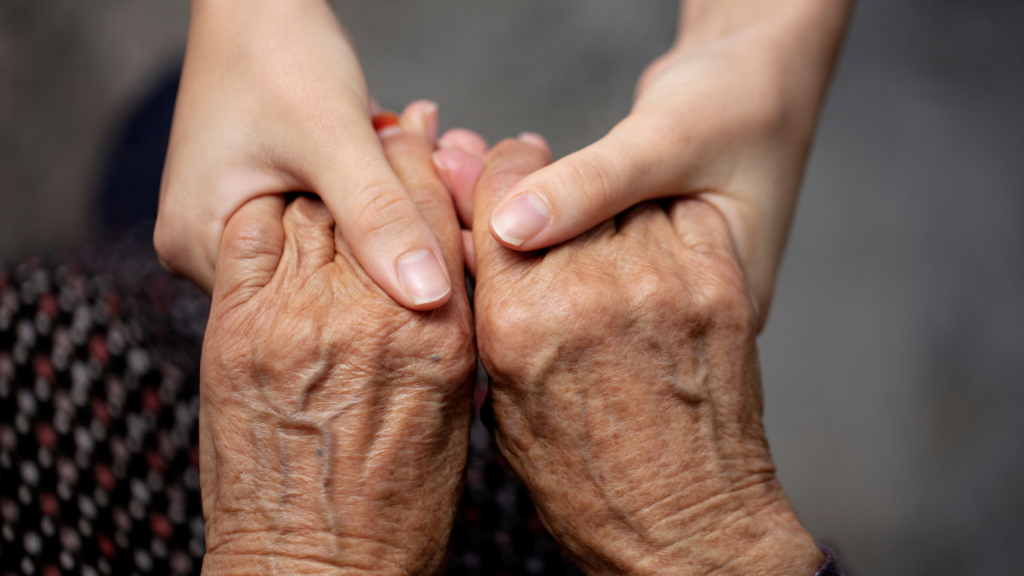Caring for the elderly means prioritizing their mental well-being. Encouraging social engagement, meaningful conversations, and mental stimulation reduces loneliness and mental health issues. Access to professional support like counseling is vital for coping with deeper concerns. Regular exercise, balanced nutrition, and enough sleep also support mental health.
Seniors encounter unique challenges such as loneliness, loss of independence, and various medical conditions, all of which can significantly impact their mental well-being. Recognizing the significance of mental health enables caregivers to offer holistic support and mental health care tailored to the specific needs of elderly individuals, promoting their overall health and quality of life.
Providing support for mental health in the elderly comes with its share of challenges. Caregivers often confront obstacles such as the stigma surrounding mental illness, limited access to mental health services, and the complexities of addressing cognitive decline and chronic illnesses.
Prevalent Mental Health Issues in Elderly Care
Recognizing mental health disorders in elderly care emphasizes seniors’ challenges in maintaining psychological well-being, a concern highlighted by the World Health Organization. Compassionate, tailored support enhances their quality of life, promoting holistic caregiving practices that prioritize mental disorders alongside physical health.
Depression: Unraveling the Silent Epidemic
Depression among the elderly is common yet often unnoticed. Seniors may feel sadness, hopelessness, and loss of interest in activities they once enjoyed, often due to factors like chronic illness, bereavement, and social isolation.
Anxiety Disorders: Navigating Uncertainties in Aging
Anxiety disorders greatly affect elderly lives, leading to excessive worry and fear about daily situations, especially when compounded by serious illness. Aging brings uncertainties like health concerns and financial worries, exacerbating anxiety symptoms in seniors.
Dementia and Cognitive Decline: Managing Progressive Challenges
Dementia and cognitive decline present significant challenges in elderly care, affecting memory, cognition, and daily functioning, including senior mental health. Alzheimer’s disease and other forms of dementia can cause profound changes in personality, behavior, and independence, leading to increased caregiver burden and emotional distress.
Loneliness and Isolation: The Impact on Mental Well-being
Loneliness among the elderly, often due to living alone and limited social interactions, profoundly affects mental and physical health. Encouraging social engagement and meaningful connections, along with community involvement, are vital strategies to combat loneliness and foster emotional well-being in later life.
Building a Supportive Environment
Supportive elderly care fosters well-being through caregiver empathy, social interaction, and safe living spaces, enhancing older adults’ sense of value, connection, and security.
Cultivating Empathy and Understanding among Caregivers
Caregivers understanding and empathizing with elderly needs enhances personalized support and overall care quality.
Promoting Social Interaction and Community Engagement
Encouraging social engagement reduces isolation, fostering a sense of belonging and emotional well-being among older adults.
Creating Safe and Comfortable Living Spaces
Designing safe, accessible, and comfortable environments promotes security and well-being, minimizing hazards and ensuring ease of navigation for the elderly.
Implementing Holistic Care Approaches
Implementing holistic care in eldercare means integrating mental health into physical routines and using mindfulness practices and therapeutic interventions like art, music, and pet therapy. This approach attends to the physical, emotional, and social needs of elderly individuals, improving their quality of life.
Integrating Mental Health into Physical Care Routines
Recognizing the connection of mental and physical health is crucial. Incorporating mental health considerations into physical care routines ensures comprehensive well-being for older adults.
Incorporating Mindfulness and Relaxation Techniques
Implementing mindfulness and relaxation practices helps alleviate stress and promote emotional balance among seniors. These techniques enhance overall mental and emotional resilience.
Utilizing Therapeutic Interventions: Art, Music, and Pet Therapy
Harnessing the therapeutic benefits of art, music, and pet therapy can improve mood, cognitive function, and social engagement among elderly individuals. These interventions offer holistic support and enrich their quality of life.
Empowering Caregivers and Families
Empowering caregivers and families means providing resources and support to navigate caregiving challenges effectively, fostering a supportive environment, and maintaining the well-being and dignity of loved ones.
Providing Education and Training on Mental Health Awareness
Equipping caregivers with knowledge and skills to recognize and address mental health issues in elderly individuals promotes proactive care and support.
Offering Respite Care and Support Groups for Caregivers
Providing opportunities for caregivers to take breaks and seek support through respite care services and support groups alleviates stress and prevents burnout.
Strengthening Communication Channels between Care Providers and Families
Establishing clear and open communication channels fosters collaboration and ensures that families are involved in decision-making processes, enhancing the quality of care for elderly individuals.
Navigating Medication Management
Effective medication management for elderly well-being demands precise dosage, timing, and interaction considerations. Clear communication among caregivers, healthcare providers, and family minimizes risks for optimized treatment outcomes.
Understanding Psychotropic Medications: Benefits and Risks
Recognizing the benefits and risks of psychotropic medications is crucial for informed decision-making and effective treatment of mental health conditions in older adults.
Monitoring and Adapting Medication Regimens
Regular monitoring of medication regimens helps ensure their effectiveness and safety. Adjustments may be necessary to address changing health needs and minimize adverse effects.
Enhancing Quality of Life through Activities and Recreation
Enhancing the quality of life for elderly individuals through activities and recreation is a multifaceted endeavor aimed at promoting their overall well-being. This can be achieved by organizing engaging activities and outings that foster socialization and mental stimulation. Planning stimulating events provides seniors with opportunities to connect with others, cultivate new interests, and find purpose, thus contributing to their happiness and satisfaction.
Encouraging seniors to pursue hobbies and interests maintains their sense of identity and fulfillment, promoting mental agility and positivity. Integrating physical exercise and physical health care into their routine enhances both physical health and mental well-being, leading to a more fulfilling lifestyle.
Preventive Measures and Early Intervention
Early detection enables caregivers to implement tailored interventions, fostering a supportive environment that promotes resilience and maintains a sense of dignity and autonomy among older adults.
Recognizing Early Signs of Mental Health Decline
Being vigilant about subtle changes in behavior or mood helps identify potential mental health issues early, allowing for timely intervention and support.
Establishing Regular Mental Health Assessments
Scheduling routine mental health assessments ensures proactive monitoring of elderly individuals’ emotional well-being, enabling prompt identification of any concerns that may arise.
Developing Personalized Care Plans
Creating individualized care plans tailored to each person’s needs ensures comprehensive support and targeted interventions, promoting optimal mental health and overall well-being in elderly individuals.
Collaboration with Mental Health Professionals
Including mental health professionals in eldercare teams is essential for addressing older adults’ mental health needs. Integrating Psychiatrists, Psychologists, and Geriatric Specialists ensures comprehensive assessment and treatment, promoting holistic well-being. Their expertise contributes to improved overall well-being and quality of life for elderly individuals.
Facilitating interdisciplinary collaborations in eldercare enhances interventions tailored to mental health needs. Open communication among healthcare professionals develops comprehensive care plans addressing unique mental health challenges, leading to improved outcomes and enhanced quality of life for older adults.
Conclusion
Prioritizing mental health in elderly care is crucial for their well-being and quality of life. Holistic approaches, including physical, emotional, and social aspects of care, enable personalized support, enhancing resilience and fostering dignity. Collaboration with mental health professionals, proactive measures, and early intervention contribute to nurturing environments where elderly individuals can thrive. Through continuous dedication, education, and compassionate care, we can honor and support our aging population, enriching their lives and promoting holistic well-being in their later years.
Valuing mental health as integral to overall health upholds the dignity and respect of older adults, ensuring they receive the comprehensive support and attention they deserve. Together, by prioritizing mental well-being in elderly care, we cultivate environments of empathy and understanding, fostering meaningful connections and enriching the lives of our seniors.
Redefine Elderly Mental Assistance – Explore Care and Help Home Care today!








